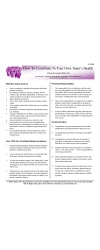Category: FAQ-Communication-Social Media

Although the technologies to create and use social networks (the new buzzword for both new and old approaches for online interaction) have been around for decades, it’s been only more recently that they have been available and used by the “masses”. During the first decade of the 2000’s, people have flocked to Facebook, LinkedIn and Twitter, the in millions, while other platforms such as YouTube provide ways to share media in social ways.
As with email, and bulletin board systems in the past, there is a knack, and skill to participating and using media for communication. It’s easy to assume that interacting on, let’s say, Twitter, or Facebook is just like e-mail. It may not be. There will always be some similarities and some differences.
Our FAQ’s About Communicating On Social Media
We will cover both basic and advanced topics about social media platforms, but we’re going to take a wide path to the discussion of communication, because of a) the popularity of these platforms, b) the desire on the part of business to use them effectively, and c) the apparent simplicity, but underlying complexity of succeeding with them.
As always you are welcome to comment via the comment and interactions sections at the bottom/side of each question and answer page.
How is Twitter particularly prone to viewers distortion syndrome (ie. appearance of many more “readers” than actually exists)?
Of the major social networking or media sites, Twitter has experienced the fastest growth, particularly in 2009. Celebrities have promoted it causing a lot of people to sign up. That success contributes to the illusion that a lot more people…
What Is The Viewers Distortion Syndrome as It Applies To Social Media
How We Overestimate the Reach and Influence of Social Media Tools The “Viewers Distortion Syndrome” is a term developed by Robert Bacal to describe the situation where the number of viewers, or communication recipients is drastically OVER-ESTIMATED. It works like…
Difference Between Vanity Social Media Writing and Purposeful Writing
Are you writing for ego, or writing for a purpose? Writing For Social Media For Business Is Different Than Vanity Writing If you are familiar with book publishing, you’ll probably know that self-publishing, in the old days used to be…
The Three Boorish Buckets Of Social Media Comments
Feedback To Dumb As Rocks People When The People Who NEED The Feedback Are The Least Likely To “Hear” It It’s an odd world. It seems that the people who really need to hear how they are perceived by others,…







